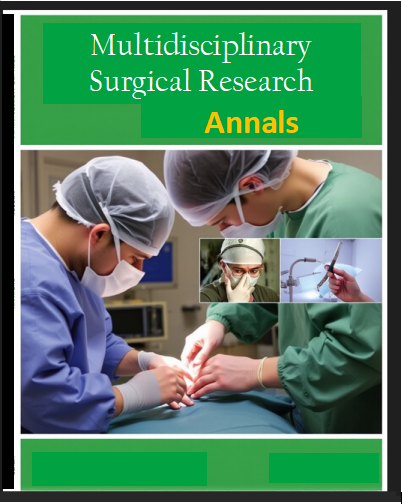Clinical Presentations Of Colorectal Cancer In The Surgical Ward Of Jinnah Postgraduate Medical Centre, Karachi
Abstract
Objective: To assess the clinical presentations of Colorectal Cancer in the Surgical Ward of Jinnah Postgraduate Medical Centre, Karachi. Methodology: This six-month cross-sectional study was conducted at JPMC, Karachi, enrolling 165 patients with histologically confirmed colorectal adenocarcinoma. Adults aged 18–70 years, with Stage I–IV disease and duration of 1–12 months, were included. Key clinical presentations were recorded after history, examination, and imaging. Data were analyzed using SPSS version 26, with descriptive statistics and Chi-square tests applied to assess associations at a 5% significance level. Results: In a sample of 165 patients with colorectal malignancy (mean age: 52.47 ± 8.62 years; 64.2% males), the most common clinical presentation was a change in bowel habits (69.7%) and the passage of rectal bleeding (51.5%), followed by anemia (32.7%), weight loss (26.7%), intestinal obstruction (24.2%) and an abdominal mass (14.5%). There were no statistically significant differences by gender at presentation. Conclusion: This investigation underscores the fact that modifications in bowel habits and the occurrence of rectal hemorrhage represent the predominant clinical manifestations of colorectal malignancy in individuals admitted to a tertiary surgical unit. Given that the majority of cases are diagnosed at advanced stages, these observations underscore the imperative for enhanced clinical scrutiny and prompt diagnostic assessment to ameliorate prognoses in resource-constrained environments, such as Pakistan.
Keywords: Altered Bowel Habits, Colorectal Cancer, Abdominal Lump, Intestinal Obstruction




